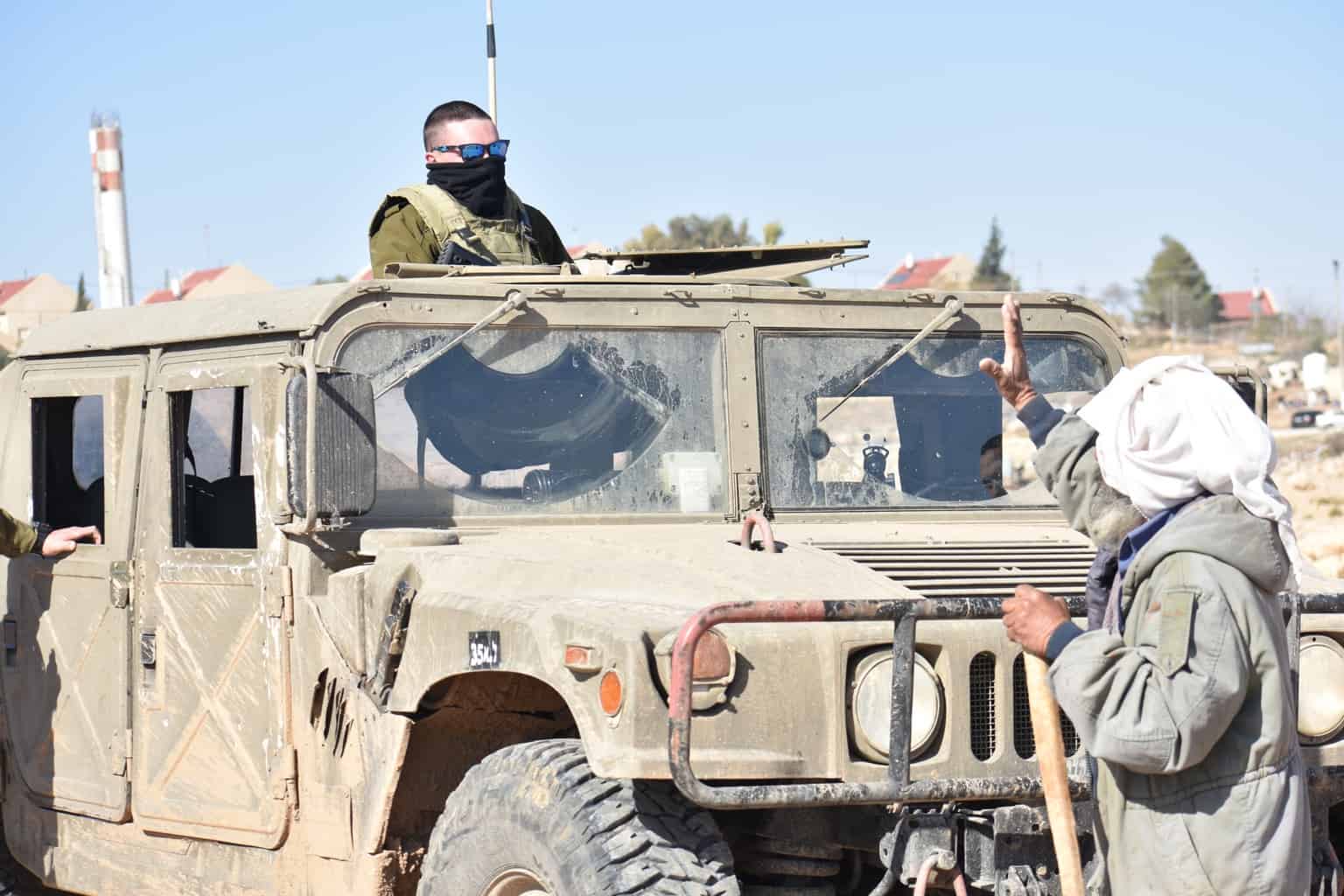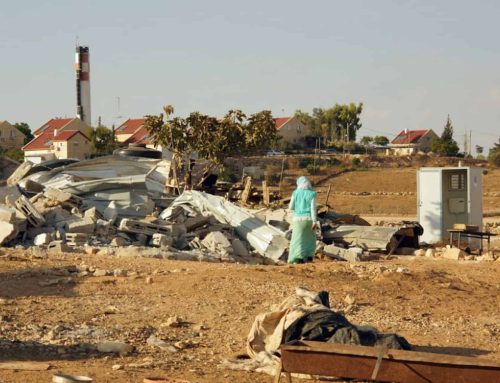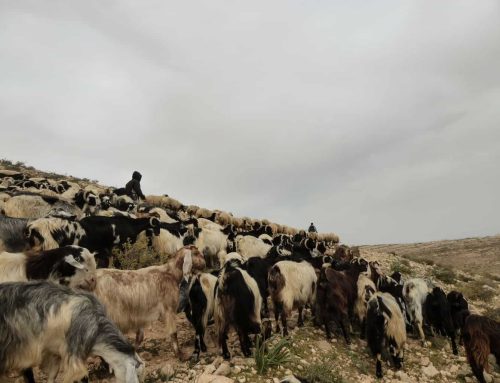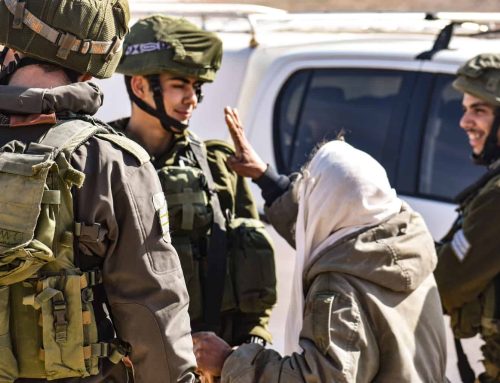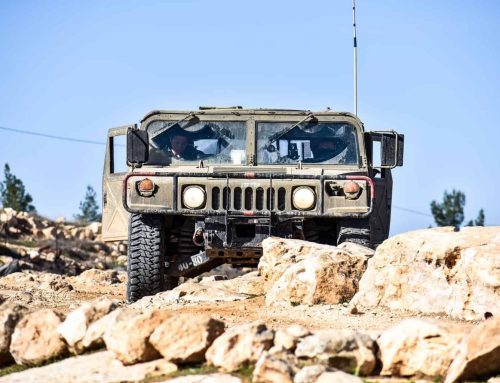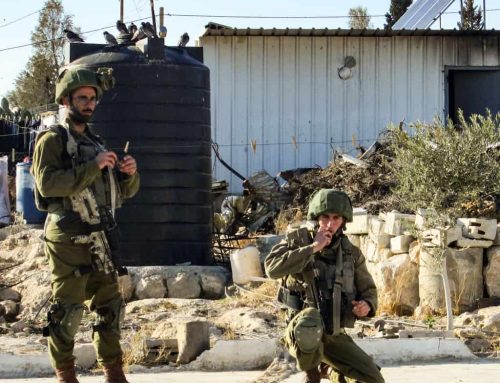Mornings Under Military Occupation
UM AL-KHAIR | 01.25.2012
By Tariq Hathaleen
Asleep in bed, tucked in under the covers and away from hardships of life and military occupation, sometimes sleep is our only reprieve from the cold reality around us. When your daily life is continually molded and shaped by the violence around you, sleep isn’t just about physical rest, it’s about a mental break from everything you’ve experienced. For many of us, it is the one bit of healing we have during the day. In our community, we let our people sleep because often times they desperately need it. So when my mother came into my room shouting, screaming and crying, I immediately knew what was happening: The Israeli military was preparing to demolish our homes again. January 25, 2012, will always be a day I remember because of the way it impacted my mother.
My mother, like most Bedouin mothers, is a strong, caring, and sensitive person because she is the mother of so many children. So my mother’s word hit me like bullets. In what has now become a normal reaction, I reached for my phone to mobilize the local community, internationals, and the press to come to our community to document the destruction so that our stories could be shared. It is sometimes hard to hold it all together emotionally so you can talk clearly with the people that you would hope to help you in these moments.
Running through the screams of my mother, I took my phone and started to see what was happening, trying to process how many Israeli soldiers there were, how many bulldozers had come that day, what roads were closed so I could tell everyone who might come how they could possibly get in. In these times, you have to push out all the fears and concerns for the people around you, almost to throw them aside so you can organize.
When I saw the sight of the Israeli bulldozers and military already in our village, our roads closed, and the Israeli Civil Administration officers holding onto the demolition papers and maps, I knew that little could be done. I had to quickly accept my powerlessness in that moment and find other means to support my community.
But little did I know that day, it would be my home, my mother’s home that would be the target of the Israeli military. Already inside our village, the Israeli military began pushing back our people, shoving them to the ground to make a clear path for the bulldozers to drop the iron blade and ram and crush my home.
In less than ten minutes, private Israeli security personnel had emptied the house of furniture, of special items, of the memories of my deceased father. In less than five minutes, they had turned our small home into a unsalvageable pile rubble. Left without anything, and in the middle of the cold winter months, we would spend the next several days in the cold and rain trying to sort out how we can make our lives whole again. We were refugees in our own small community, with our only hope that the international community would come and provide us some small tents to keep some of the rain off of us.
There was seven of us living in that small little house, six of us were children. Life was not simple in those days. We lived in that tent for three months until our house was rebuilt by the institutions of the European Union. This was the second demolition my family encountered, and it was not the last one. Our house was demolished three more times.
From that day, I still have a lot of questions about life here on this land and how the world relates to us when they see the Israeli military continually demolishing our lives. But the biggest question I have is when will the Israeli occupation end?



